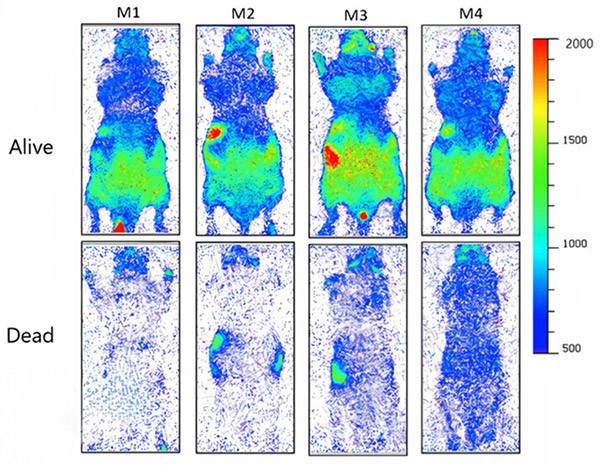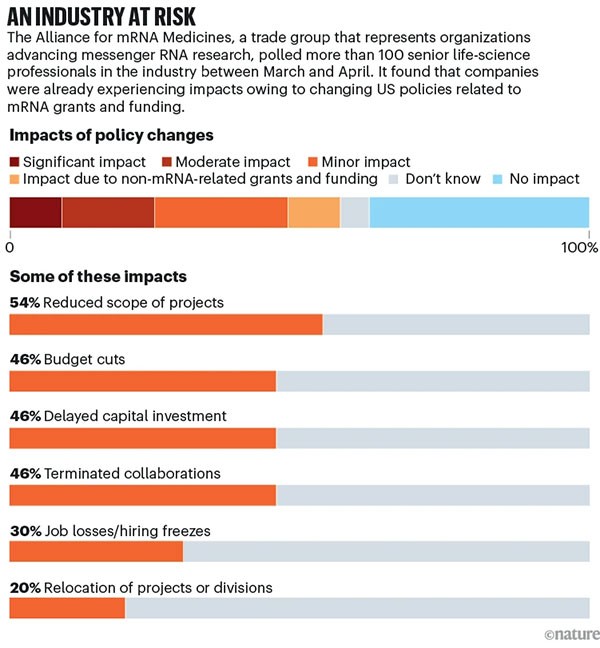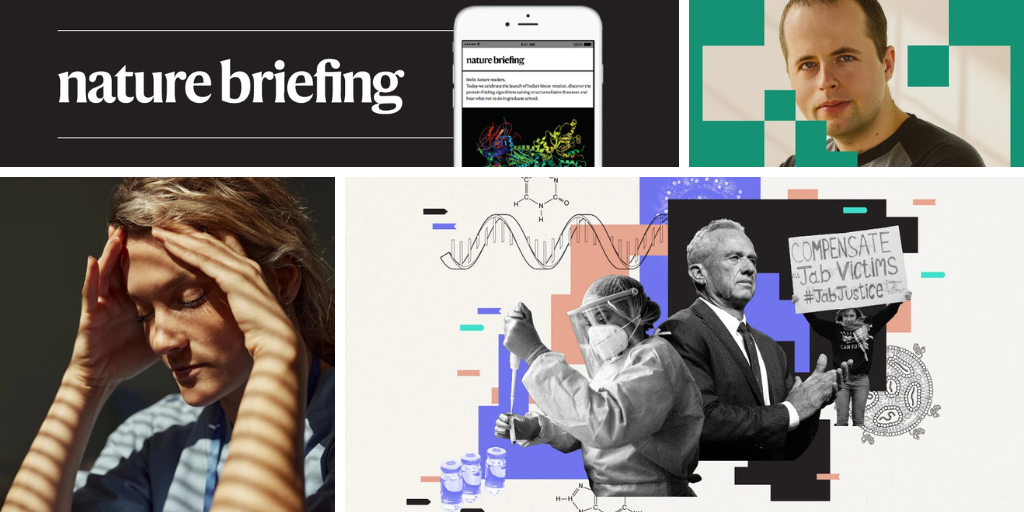You have full access to this article via your institution.
Hello Nature readers, would you like to get this Briefing in your inbox free every day? Sign up here.

Migraine symptoms that appear long before a headache can include fatigue, light sensitivity, neck pain and difficulty concentrating. Credit: skynesher/Getty
Ubrogepant — a drug known to treat migraine headaches — seems to alleviate debilitating non-headache symptoms, such as fatigue and light sensitivity, that can start hours or even days before a full-blown migraine attack. In a phase III trial, participants self-reported that ubrogepant increased their ability to concentrate, and reduced their fatigue and light sensitivity in the lead up to a migraine, but the “effect sizes were small” compared with placebo, notes neuroscientist Gregory Dussor.
Reference: Nature Medicine paper
The Mexica Empire — also known as Aztecs — forged far-reaching trade networks in their pursuit of volcanic obsidian glass. Researchers measured the trace elements in almost 800 artefacts containing obsidian found in Templo Mayor — the main worship temple in the Mexica Empire’s capital — to pinpoint their geological origin. The pieces came from at least eight locations, some of which spanned beyond the empire’s borders.
Reference: Proceedings of the National Academy of Sciences paper
A new study hints that plants and animals — including people — emit a tiny glow when alive, which disappears after death. This ‘ultraweak photon emission’ — equivalent to a few photons a second per square centimetre of skin tissue — might be a byproduct of energy-producing processes within cells.
Reference: The Journal of Physical Chemistry Letters paper

Researchers used detectors sensitive enough to capture single photons to image those emitted by mice when alive and dead. (Salari, V. et al. J. Phys. Chem. Lett. 2025, 16, 17, 4354-4362)
Features & opinion
Drug makers are scrambling to navigate an “existential threat” to one of the most promising medical breakthroughs of the century: mRNA vaccines. In the United States, the cradle of much mRNA research, public trust has been damaged by anti-vaccine activism, led by Robert F. Kennedy Jr, who is now at the head of the country’s top health agency. In this newly hostile political climate, mRNA-vaccine advocates hope to remind US president Donald Trump of the technology’s immense success against COVID-19 during his first term. “I think what we’ll see in the next few years is that this tech is ceded to international competitors,” says RNA-therapeutics researcher Alex Wesselhoeft

Jakub Pachocki leads the development of advanced artificial intelligence (AI) systems at OpenAI, the maker of ChatGPT. From his perspective, progress towards artificial general intelligence (AGI) — human-level cognitive ability — is happening faster than expected. “Going into grad school, a milestone for AGI that I saw was mastering the game of Go and I thought it would take decades. Of course, it fell in 2016, which to me was a world-shattering moment,” he says. He thinks, ultimately, AI models will generate original science. “Even this year, I expect that AI will, maybe not solve major science problems, but produce valuable software, almost autonomously.”
In his new book Super Agers, physician-scientist Eric Topol reports on his takeaways from the ‘Wellderly’ study, which looked at more than 1,400 unusually healthy people over 80 years old. Here are five strategies he suggests will help us age well:
• Take plenty of exercise, especially strength training
• Get adequate and consistent sleep
• Do activities that bolster mental health, such as spending time in nature and maintaining social relationships
• Don’t confuse tracking your health data with making the necessary changes to actually become healthier
• Be wary of health ‘influencers’ who flog unproven interventions. “If they’re hawking a supplement,” he says, “I would kick them off the list of being credible.”
The New York Times | 5 min read
Where I work

Cesária Huó is a conservation biologist at the Gorongosa National Park in Mozambique.Credit: Kang-Chun Cheng for Nature
Conservation biologist Cesária Huó photographed a colony of fruit-eating bats (Eidolon helvum) as part of her work recording bat vocalizations in Mozambique. “As we learn about the different types of vocalization, we can understand the phases of a bat’s life better and perhaps be able to conserve species with fewer interventions,” she says. (Nature | 3 min read)
Today I’m taking a leisurely scroll through direct images taken of planets outside our own Solar System. Few are crystal-clear, but they are trillions of kilometres away, orbiting distant suns, so I’ll allow it. These spectacular views have me crossing my fingers and toes that NASA’s Nancy Grace Roman Space Telescope will survive and launch as planned in two years to open a new window onto exoplanets.
Let me know where you’d point Roman’s eye-in-the-sky — plus any feedback on this newsletter — at [email protected].
Thanks for reading,
Flora Graham, senior editor, Nature Briefing
With contributions by Jacob Smith
Want more? Sign up to our other free Nature Briefing newsletters:
• Nature Briefing: Careers — insights, advice and award-winning journalism to help you optimize your working life
• Nature Briefing: Microbiology — the most abundant living entities on our planet — microorganisms — and the role they play in health, the environment and food systems
• Nature Briefing: Anthropocene — climate change, biodiversity, sustainability and geoengineering
• Nature Briefing: AI & Robotics — 100% written by humans, of course
• Nature Briefing: Cancer — a weekly newsletter written with cancer researchers in mind
• Nature Briefing: Translational Research — covers biotechnology, drug discovery and pharma


